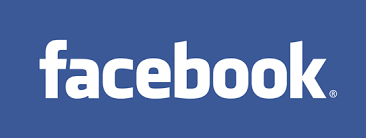We had the great opportunity to ask Ian Cheney of King Corn 10 questions.
"King Corn is a feature documentary about two friends, one acre of corn, and the subsidized crop that drives our fast-food nation. In King Corn, Ian Cheney and Curt Ellis, best friends from college on the east coast, move to the heartland to learn where their food comes from. With the help of friendly neighbors, genetically modified seeds, and powerful herbicides, they plant and grow a bumper crop of America's most-productive, most-subsidized grain on one acre of Iowa soil. But when they try to follow their pile of corn into the food system, what they find raises troubling questions about how we eat-and how we farm."
1. What was your goal going into making King Corn?
Ian: Growing up on the East Coast, I had a decent understanding of where apples, blueberries and cranberries came from, but the majority of what I ate came from elsewhere. Put simply, my goal in developing King Corn with Curt and Aaron was to tell the story of where our food comes from -- by growing it.
2. How was King Corn financed? Were large donations made to the making of the film?
Ian: King Corn was a grassroots operation. Small foundations and dozens of generous individuals buoyed us through the first several years, until the Independent Television Service (ITVS) came on board with funding from the Corporation for Public Broadcasting.
3. Did you have any previous education or experience in the food industry or agriculture going into this film?
Ian: In college I became very active in bringing local farmers to campus to supply their produce to the dining halls. Like many of my peers, I had an almost instinctual desire to forge a better connection with the sources of my food. As this work developed into the Yale Sustainable Food Project, I also completed a Master's degree studying the ways in which consumers become disconnected from the sources of their food. But it wasn't really possible to study food or farming at my liberal arts college, and most of the calories in the dining hall were from cattle ranches or processing plants thousands of miles away.
5. Did you ever raise enough to buy the acre of land? Was it left empty or was something else planted on it?
6. Why did the farmer you stayed with end up leaving Greene? Was he forced out, retired, etc...?
9. How did you connect with Michael Pollan? How large was his role/influence in the making of King Corn? Was the King Corn concept born before Michael Pollans omnivore's dilemma was published?
10. What is the best way average people can change the way our food system is currently set up for the better?
Ian: There's a lot to be done -- but I'd like to say, "Ask." Ask your waiter where the beef or pork or chicken comes from. Is it grass-fed? Pasture-raised? Local? Are there local options on the menu? Ask at the grocery store, at the convenience store -- and if you don't find what you want, ask why not?
________________________________________________________
The Salted Cod would like to thank Ian Cheney & Naomi Starkman for this great opportunity.



4 comments:
Good interview! Michael Pollan had an excellent op-ed in the NY Times recently, did you see it?
If you come out to Western Mass. this weekend, I'd like to show you what a barn full of silage looks and smells like.
I must also take this opportunity to quote a Ted Berrigan poem:
In Joe Brainard's collage its white arrow
does not point to William Carlos Williams.
He is not in it, the hungry dead doctor.
What is in it is sixteen ripped pictures
Of Marilyn Monroe, her white teeth white--
washed by Joe's throbbing hands. "Today
I am truly horribly upset because Marilyn
Monroe died, so I went to a matinee B-movie
and ate King Korn popcorn," he wrote in his
Diary. The black heart beside the fifteen pieces
of glass in Joe Brainard's collage
takes the eyes away from the gray words,
Doctor, but they say "I LOVE YOU"
and the sonnet is not dead.
kudos on the interview, Trevor
Nice interview. I'm dying to see the film. Would it be wrong to buy popcorn?
Excellent interview! It throws much needed light on our Corn Culture!
Post a Comment